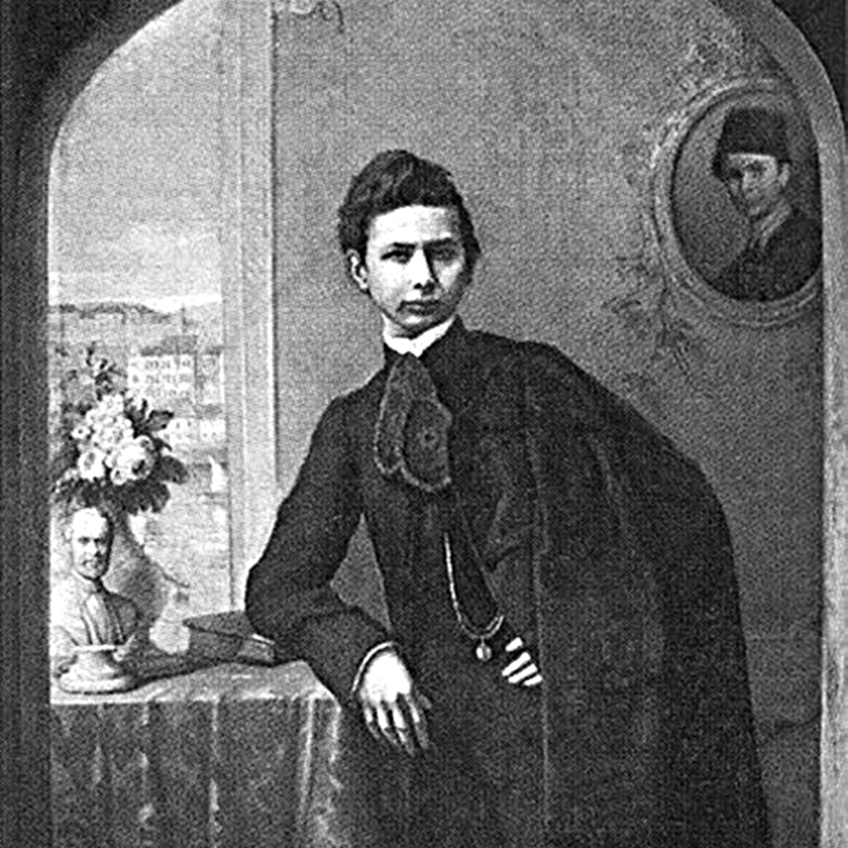He is one of the founders of non-Euclidean geometry: Who is Jânos Bolyai?
Having devoted almost his entire life to the critique of Euclidean geometry, Bolyai was greatly disappointed and hopeless when he learned that the same conclusions had been reached before him.

(1802-1860) Hungarian mathematician. He is one of the founders of non-Euclidean geometry. He was born on December 15, 1802, in the city of Kolozsvar (today Cluj in Romania), within the borders of the Austro-Hungarian Empire. In some sources, his minor name is Johann. His father, Farkas (Wolfgang) Bolyai (1775-1856), was a valuable mathematician who was also closely involved in literature, painting, and music. In his tragedy Mohamed vagy a dicsöseg qyözedelme a szerelmen (“Mehmed or the Love of Glory and Honor Beating the Love”), which he published in 1817, the father Bolyai, who covered a section of the life of Sultan Mehmed the Conqueror, took up his son's mathematics and music education starting from a young age and took over his son's mathematics and music education. He was quick to realize that he was gifted in both subjects, especially his mastery of playing the violin.
János Bolyai (15 December 1802 – 27 January 1860) or Johann Bolyai, was a Hungarian mathematician, who developed absolute geometry—a geometry that includes both Euclidean geometry and hyperbolic geometry. The discovery of a consistent alternative geometry that might correspond to the structure of the universe helped to free mathematicians to study abstract concepts irrespective of any possible connection with the physical world.
From 1815 to 1818 he wanted his son to go to Göttingen to study with his close friend Gauss, who studied at the Reformed Protestant College in Marosvasarhely (now Tirgu-Mureş in Romania), where he taught mathematics, physics, and chemistry. However, Jânos Bolyai chose military training and, graduating from the Royal Engineering Academy in Vienna in 1822, served in the engineer's squad until 1833.
Bolyai, who devoted almost his entire life to the criticism of Euclidean geometry and laid the foundations of a new geometry in 1823, was greatly disappointed and despairing when he learned that Gauss had dreamed of a geometry similar to this before him and that Lobacevski had reached the same conclusions before him. Believing that his theory had lost its originality and that his life had been unsuccessful, he began to live away from mathematics and people. When he retired from the army, he returned to Marosvâsârhely with his wife and three children and left his wife soon after his father's death.
In his last years, Bolyai, who composed for the Vienna Opera in memory of his mother and developed a "theory of salvation" based on universal happiness and virtue by being interested in philosophy, died in Marosvâsârhely on January 27, 1860.
His father had a great influence not only in Bolyai's inclination toward mathematics but also on the choice of the subject he studied. The famous "postulate of parallelism", the basis of Euclidean geometry and the focus of all his father's work, was also of great interest to the young Bolyai.
As can be seen from his diaries, Gauss reached Bolyai's conclusions before him, and the Russian mathematician Lobachevsky first described this type of geometry in 1826 and published it three years later. Thus, these three mathematicians Gauss, Lobachevsky, and Bolyai, almost at the same years and independently of each other, introduced a new understanding of geometry known as hyperbolic geometry. In this geometry, which accepted the validity of the first four postulates of Euclid, the validity of the modified fifth postulate was ensured by a special understanding of space. The importance of this concept of space and geometry, which even a great mathematician like Gauss hesitated to publish because it shook the tradition of geometry for nearly two thousand years, although it was consistent within itself, has emerged with the work of mathematicians such as Cayley, Klein and Riemann, Einstein. It also gained a physical basis with the theoretical studies of relativity.
------------------------------------------------
How a Hungarian Teenager Revolutionized Mathematics and Equipped Einstein with the Building Blocks of Relativity
https://www.themarginalian.org/2018/03/27/a-new-universe-from-nothing-bolyai-non-euclidean-geometry/
